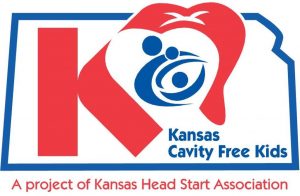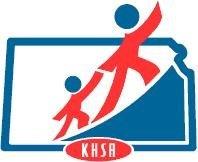Hospitals
“High 5 for Mom & Baby” encourages Kansas hospitals to adopt five evidence-based maternity care practices that support breastfeeding success. Participating hospitals receive free training, support and resources to implement the following five practices:
- Assure immediate and sustained skin-to- skin contact between mother and baby after birth.
- Give newborn infants no food or drink other than breast milk, unless medically indicated.
- Practice “rooming in” — allow mothers and infants to remain together 24 hours a day.
- Give no pacifiers or artificial nipples to breastfeeding infants.
- Provide mothers options for breastfeeding support in the community (such as a telephone number, walk-in clinic information, support groups, etc.) upon discharge.
A list of participating hospitals and those who have been recognized as “High 5 for Mom & Baby can be found at “Participating Hospitals” on the High 5 for Mom & Baby website. If you have questions about the program or would like more information, please contact Gwen Whittit, Program Coordinator, coordinator@high5kansas.org .
This program is funded and administered by the United Methodist Health Ministry Fund, Hutchinson, KS.
Oral Health
Exclusive breastfeeding is protective of dental caries. Once other foods (including formula) are introduced into the baby’s diet, the risk of dental caries is the same as that of all children eating adult food and good oral hygiene and dental visits are important to avoid cavities.
Fun Facts about Breastfeeding and Cavities:
· Breastfeeding does not allow milk to pool in the baby’s mouth around the child’s teeth. Milk from a bottle flows spontaneously into the mouth and pools on and around the teeth.
· Antibodies in breastmilk help to impede bacterial growth that causes tooth decay. Lactoferrin, a protein in breastmilk, actually kills Steptococcus mutans, a germ that causes tooth decay.
· Sucrose (in formula & high sugar foods) equals a higher risk of caries. Lactose (in breast milk) is protected by the antibacterial and enzymatic qualities of breastmilk. Lactase enzyme splits lactose into glucose and galactose in the intestines, rather than in the mouth, reducing the risk of tooth decay.
· Immune factors in breastmilk, such as secretory immunoglobulin A and G (IgA and IgG), are protective. Exclusively breastfed children have less dental decay than do those who are fed other foods.
· Children’s teeth exposed to breastmilk as the only carbohydrate source, caries did not occur.
· Breastfeeding allows for proper oral-facial development. Predominant breastfeeding was associated with a lower prevalence of Open Bite, Over Jet, and Moderate/Sever Malocclusion, but pacifier use modified these associations.
Parent education tool – “Breastfeeding and Healthy Teeth” Fast Fact Sheet (coming), a product of Kansas Healthy Start Association, Kansas Cavity Free Kids.
Physicians
Kansas Breastfeeding Friendly Practice Designation
The Kansas Chapter of the American Academy of Pediatricians (KAAP) in collaboration with the Kansas Breastfeeding Coalition has created the Kansas Breastfeeding Friendly Practice Designation that can be earned by physician practices in Kansas. Medical providers who care for mothers and babies are in a position to offer support and encouragement that can lead to successful breastfeeding. Created to increase exclusive breastfeeding rates at six months of age and beyond in Kansas, this initiative will help practices create policy and environmental changes that will support breastfeeding mothers.
Participating practices can earn up to a 5-star designation, one star for each of the Breastfeeding. Check-out if your local provider is participating: Check out if your provider is participating.
Friendly Practice criteria:
- A breastfeeding friendly office environment
- Education for both staff and parents
- Policies and procedures that promote breastfeeding
- Community connections and breastfeeding resources
- On-site individualized breastfeeding support
A physician trainer will give an on-site training – FREE CME and lunch included for the practice – based on the Breastfeeding Friendly Practice criteria to each participating practice. Practices will receive a tool kit including a window cling, poster, parent handouts, and electronic resources on a portable drive.
Know a practice you’d like to encourage to apply? Download the Promotional Flyer to share with local practices.
Visit KAAP Breastfeeding for more information or to enroll. Contact Mel Hudelson at mel.hudelson@kansasaap.org with questions. This program is funded and administered by the Kansas Chapter of the American Academy of Pediatricians (KAAP).


